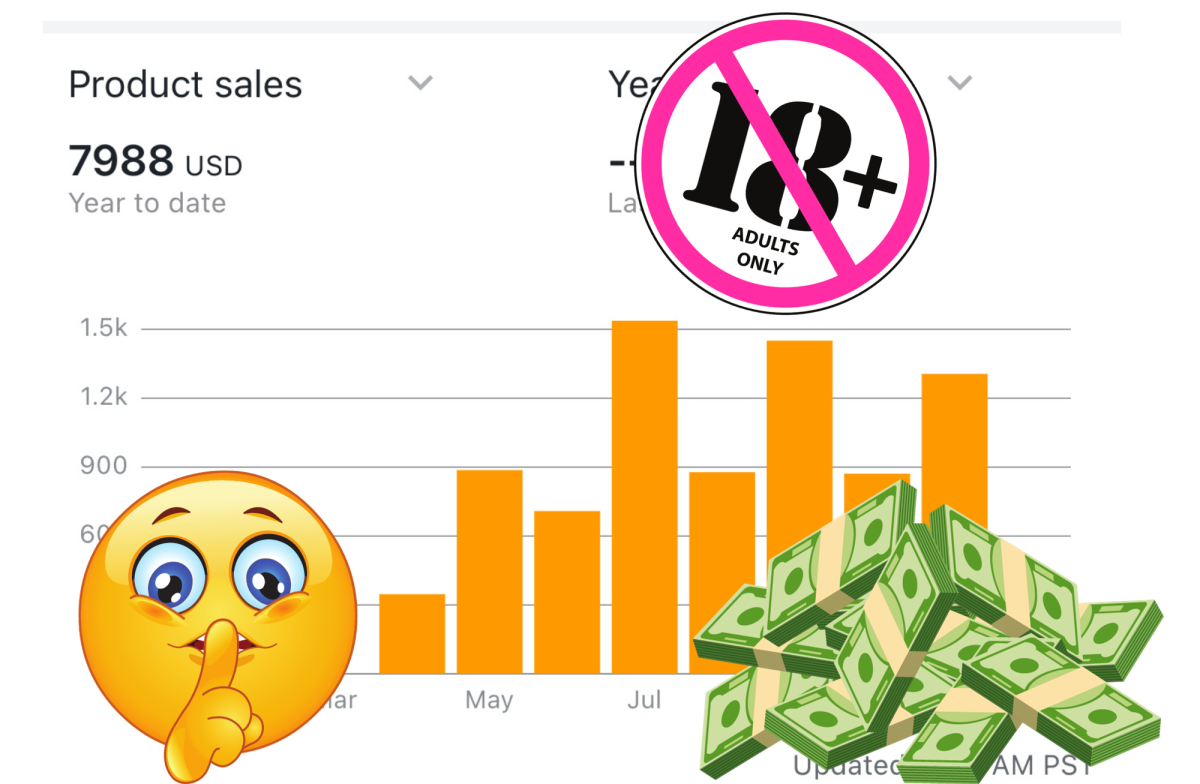Keeping Fresh on a Long Sales Cycle

Durable Goods Sales take time.
Everyone pretty much accepts that the sales cycle on durable goods or real estate is expected to be fairly long. You don't buy items that last 5-50 years every week - usually. But when you do buy something that will last 50 years - how long is the sales cycle compared to something like - sutures used in surgery or switches that have a known life cycle?
This is where the surprise usually comes in. There are so many variables in sales that no one can ever list them all - and few individuals have the cross-pollination of selling in multiple fields that are not linked in some way. So how do you, as a salesperson, keep it fresh during a long sales cycle? It is a mental game that takes has a lot of challenges.
First, let's explore what a long sales cycle can be defined as. If you are a car salesperson, you may experience periods when the economy just isn't allowing people, due to economic circumstances, to buy cars. So the time period between sales is longer. Is that a long sales cycle? If the economy is in such a situation that banks aren't lending which prevents as many people from buying new homes so as a Realtor there is a longer period between sales - is this a long sales cycle? If most of your business shifts from selling fuel to trucks with big fuel tanks from cars with small fuel tanks - so it is longer between fill-ups, does that count as a long sales cycle? In my definition, these are extended sales periods - but not long sales cycles. Here are some samples of long sales cycles.
If you have ever been involved in medical sales there is a good chance you have experienced a long sales cycle. If you sell life or health or for that matter any insurance products, there is a good chance you know what a long sales cycle is. If you sell durable goods - machinery or expensive products that last a long time, these CAN be involved in long sales cycles.
Why do these fit the description? Here is a good example. If you call on physicians - let's say a surgeon - he was educated using a particular type of implant that is implanted using a particular type of instruments that he is used to holding and feeling to do the surgery. He's performed hundreds if not thousands of these surgeries - whatever they are. You show up fresh out of a sales training school and have shiny new brochures, a stack of samples, some new widget that does the same job as the other product. How do you get the doctor's attention? Remember, in medical sales you don't have the option of selling the doctor the product at a lower cost so he can profit more - he doesn't buy the stuff, the hospital does and bills the insurance company. He is only paid by the insurance company or hospital for the procedure, not the goods used. You can't give him money, that is 1. unethical and 2. illegal (at least in the U.S.). You may be able to show some features and benefits to the patient outcome that are superior to his current path. You also may be able to show him the ease in which your product goes in shortens the time in surgery for the same outcome - meaning more surgeries per day meaning more income - or more time to do other things, just as valuable.
The point being, getting a doctor to switch from one type of product to a new one may take months or years. Usually it happens due to other outside influences such as restrictions by the hospital or insurance company, transfer or death of his old buddy that sold him the other stuff, a unique situation requiring a unique approach or, sadly in some instances, illegal bribery. In any case, these situations don't happen overnight and you usually have little influence on them.
This is also the situation for selling pharmaceuticals unless there is some breakthrough drug that doesn't have the problem of resistance or it performs much superior in most patients - or the inverse - performs for specific few patients. Doctors are judged on the outcome of their patients. If the offering you are selling isn't going to positively influence his reputation just stay home.
Then there is the other step - the hospital where the doc works has to allow the product in. More and more hospitals are working with purchasing groups that are national or international in scale that intend to provide a service by sourcing for the group keeping prices for the individuals low as possible. These purchase groups add another level of bureaucracy to the purchase, another time component and another layer of cost that is rarely included in any discussion. Rarely does the end result for the hospital actually improve - but they think it does and it gives them an "out" to force the salesmen to conform to.
If you are calling on a large industrial account that uses electronic switches or valves or some kind of similar product - or even a commodity to some degree - they have a solid supplier, why would they switch? Of course there are those lists we, as salespeople can build, but keep in mind there are a lot of people involved in a decision like this. Part numbers have to be entered into computer systems that link to a central pay system somewhere in another state or country. A new vendor costs a lot of money to incorporate. If they switch, there may be other significant training, changes or equipment required to utilize your product. All this must go into a change - not just buying the new stuff.
I have sold products in multiple markets from insurance and real estate to industrial products and medical implants. I have sold advertising for radio, television and print advertisers. I've sold on a national, international and local basis. I love selling - and I love to figure out the process which is always similar in some ways and very different in others. One thing that is constant, every salesperson thinks their market is the toughest and long sales cycle salesmen may be right.
The Setup
The astute salesman that recognizes from the start that it will probably be a long sales cycle to get something going plans for it. In addition, he lays out opportunity points where he can dig in a little along the way to be sure if the time has come to push. Asking other salesmen of similar products what their experience has been is often helpful. Salespeople like to talk about how they get things done. Normally, successful salespeople are people oriented and genuinely like to help people achieve their end goal. The person you want to talk to is someone who has done it more than once successfully. Find two of these folks in the same industry and their stories with be different but just as helpful if you listen closely. These nuggets of information are invaluable to the novice and experienced salesman alike.
Establishing a foundation for a sale is not unlike building any other substantial relationship. The better and stronger that foundation the longer the relationship will last and the better the relationship will stand against the arrows of the competition. Take the time in the beginning to learn about your products and how they compare to all of the competition available. "Know thine enemy as thyself" (Sun Tzu - The Art of War) isn't my quote but it is valid today and tomorrow. Learning takes time that isn't putting money in your pocket - yet. Do it when it is dark - there are other, more profitable things to do when it is daylight. Build the foundation so you can answer questions about your products based on what you already know about your competition. A good lawyer never asks a question he doesn't already know the answer to. A good salesman doesn't let a customer ask a question that he doesn't know the answer to - about his competition.
Find your prospects and be sure you are looking at the right people. Who are the right decision makers and the right gate keepers that hold you away from them. What are the keys to getting to them? How do you do it without being too obvious. They know what you are doing, you are a salesman, just give them good reason so that they will help you with your plan. Maybe not outwardly, but be helpful and they will be helpful too.
Work Your Plan
This isn't going to be a sale where you make an appointment, enter the office of the buyer, whip out your sales presentation - or price list - or brochure - and say "can I deliver on Monday or is Tuesday better for you?" You always try, ALWAYS TRY TO CLOSE without being obnoxious or becoming ridiculous. But this is the hard part. This is where you keep the relationship and the contact fresh and continue to build on your foundation.
First, how often do you actually call on the prospect? Think about this a little. Phone, in person, email, dropping them snail mail information, are all contacts and can become overwhelming if you aren't bringing timely, valuable, interesting information. Going by to waste a prospect's time every week just so you either meet your boss's quota he imposed on you or because you feel like the other guy will get one up on you isn't going to win the prospect.
I do believe you need to be visible when you have some reason to be visible. But being visible when you aren't offering value means you have too much time on your hands for the prospect. He/she will begin to believe either you are a bother or just don't get it. One company I worked with would send their salesmen out with every delivery the delivery man made. The salesman was supposed to track down the requester - not the buyer necessarily but the person that needed the product - when they were making a delivery and pitch some other product. This was on every delivery. The customer I am talking about actually quit buying products from them because of this policy - it was bothersome for the end user - and dangerous to some extent to have this salesman walking around the plant all the time.
If you are keeping up with changes in the market by reading blogs, reading the news associated with your industry, and talking to other professionals outside your own company, then you should have a tidbit or two every couple of weeks worthy of either - sending as short email saying, "Bill, don't know if you saw this, but it appears that M&M is going to be the ones to get the Clofton contract. Would that help your group with the supply lines on that deal?" You see what you are doing is showing genuine interest in the success of your prospect and his company. Once he sees this is real and you aren't just blowing smoke up his leg, he will begin to share information back to you.
Be a Resource
When I call on prospects and customers, the last thing I tell them before leaving is always the same thing. "Call me if I can help you with anything. Remember, I travel a good bit and have a lot of contacts so if there is something you are looking for, I may not sell it but may have a legitimate source for you to consider." Occasionally I get a phone call for some random product that I have never heard of. I google it or call someone I know that may have some idea where it could be found. In many cases, I can either pick up the sale myself or play bird dog for a new friend - and either earn a fee or a contact to get in somewhere else - but more important I was a resource for my prospect - which means his current supplier wasn't. That is important.
Be Consistent
I know how hard it is to keep waking up, kicking yourself in the butt to go out the door and make another sale. I am well aware of how difficult it is when sales aren't happening to put another gallon of gas in the tank, or even shave and put on a clean shirt, and make that next sale. But if you don't put the bait in the water I guarantee you won't catch any fish. Get to that prospect in some way no less than once a month, never more than once a week (provided he isn't a captive prospect). But be consistent - make the call, see them and bring something new with you every single time. Never show up empty handed and say, "I just had some time to waste so I thought I'd do the same for you." I mean not really, but if you really tell the prospect that now you are telling him you are wasting time calling on him, he will believe you.
Make sure that prospect continues to know that he is your most important prospect and when he becomes a customer - he'll get the same level of interest and support. Then, of course, ask for the order.
The Close
Something may trigger an opportunity and often it isn't something you did. But if you have done what I have been writing about, when the trigger is pulled, your name will be the one that comes up. The other company goes out of business, quits selling what they like buying, can't deliver on time, the rep he used dies, retires, quits or whatever - you better be ready. This is it. This is your moment in the spotlight - make the most of it. If you have been staking out your claim, if you have kept up with the competition, know what is going on in the industry, you will know and be ready. You will also know price isn't going to be the determining factor - at least not price alone. Bring your A-game and your prospect will become your customer this day. Don't let him/her down - and be sure to do the same level of follow-up after the sale that you were doing prior to the sale.
With the foundation you built, you are going to be able to build a great new relationship. Don't screw it up - and don't let your company screw it up either. Be the customer's greatest advocate and it will pay big dividends for years to come. Let me know how it works out for you!
The Inventurist.
<script type="text/javascript">
var _gaq = _gaq || [];
_gaq.push(['_setAccount', 'UA-27984139-1']);
_gaq.push(['_trackPageview']);
(function() {
var ga = document.createElement('script'); ga.type = 'text/javascript'; ga.async = true;
ga.src = ('https:' == document.location.protocol ? 'https://ssl' : 'http://www') + '.google-analytics.com/ga.js';
var s = document.getElementsByTagName('script')[0]; s.parentNode.insertBefore(ga, s);
})();
</script>







